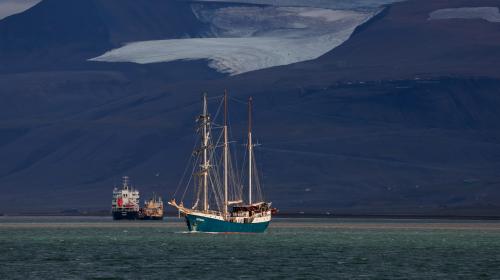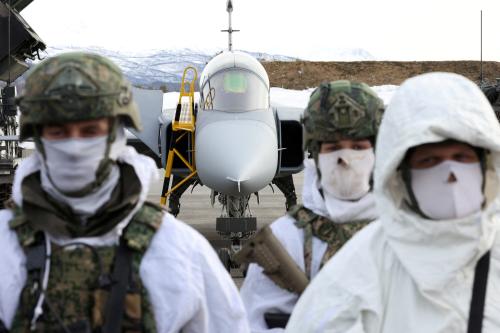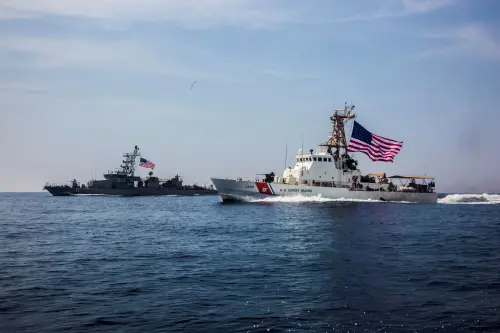

10:30 am EDT - 11:30 am EDT
Past Event
New analysis reveals that China describes the Arctic as one of the world’s “new strategic frontiers” and is seeking to become a “polar great power.” Though it downplays this goal publicly, it has taken steps to exert greater influence in the region by joining its institutions, like the Arctic Council as a permanent observer, and engaging in high-level diplomacy. Likewise, it has increased its military investments, dispatched naval vessels to the Arctic, and built its first icebreaker. Chinese military texts treat the Arctic as a zone of future military competition, raising questions within NATO — which is also focused on Russia’s resurgent presence in the region — about how to ensure the Arctic remains stable and free from conflict.
On May 5, Foreign Policy at Brookings convened a panel of practitioners, academics, and policy experts to discuss a new report by Rush Doshi, Alexis Dale-Huang, and Gaoqi Zhang — “Northern expedition: China’s Arctic activities and ambitions” — which explores these themes and considers how the United States and its allies and partners should respond. Questions from the audience followed the discussion.
Viewers submitted questions via email to [email protected] or on Twitter using #ArcticChina.
Panelist



Constanze Stelzenmüller
January 27, 2026

Jeremy Greenwood
February 8, 2023

Brad McNally
December 9, 2022